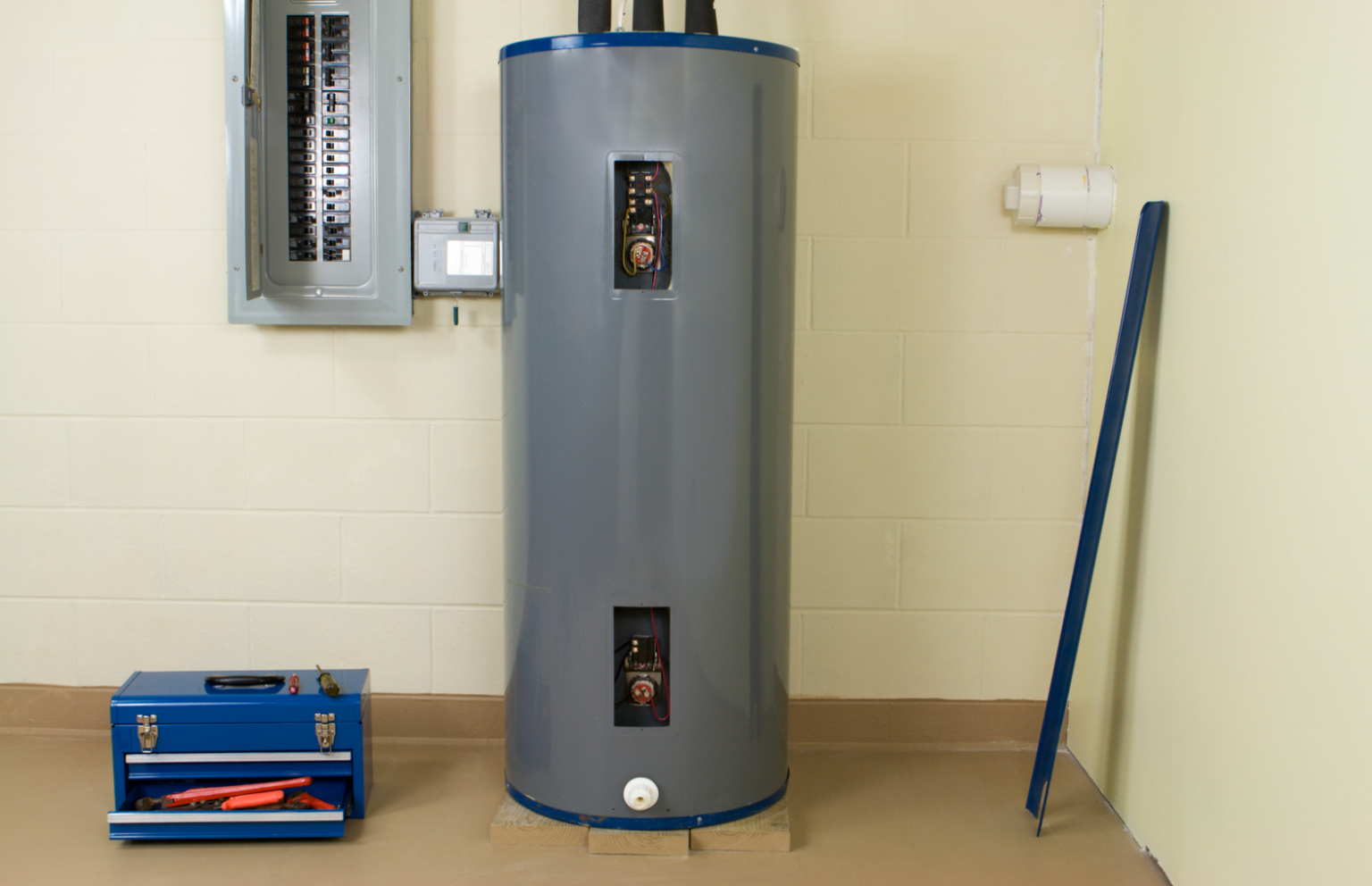Water heaters are essential for modern comfort, providing hot water for showers, cleaning, and cooking. However, common water heater problems can throw a wrench into your daily routine, leaving you with cold water and frustration. From issues with the heating element to unexpected water leaks, these problems can arise in electric and gas water heaters.
When your water heater isn’t producing hot enough water, or you’re dealing with discolored water, it’s crucial to understand the common issues that may affect your system. This article highlights the most common water heater problems and their practical solutions.
Whether you must address low water pressure, resolve water temperature inconsistencies, or deal with a faulty water heater tank, we’ve got you covered. Dive in to learn how to tackle these common water heater issues and keep your water hot and your routine uninterrupted.
What is the most common problem with a hot water heater?
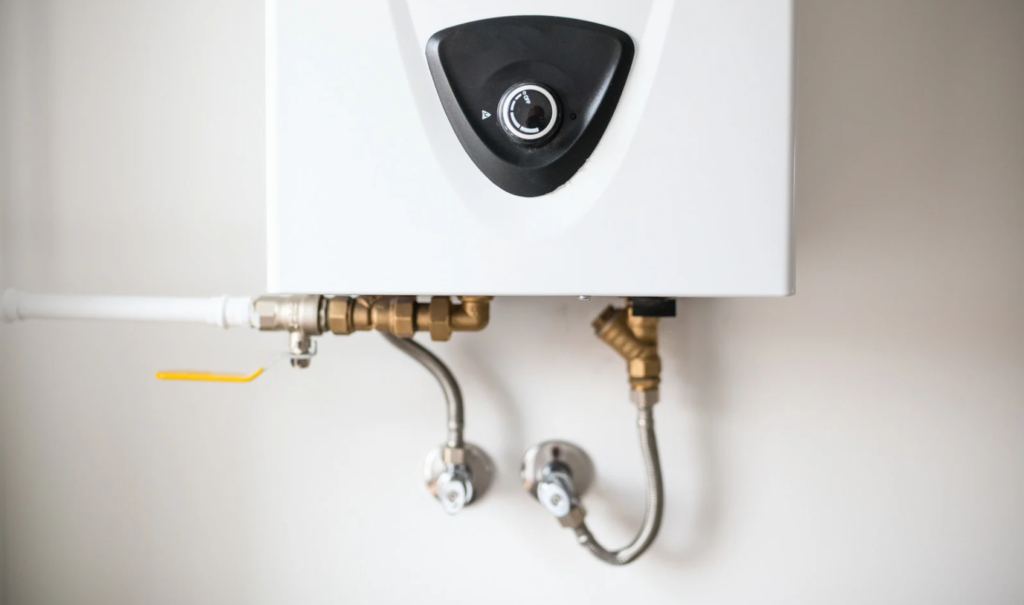
The most common problem with a water heater is often a lack of hot water, which can stem from various issues. In electric water heaters, faulty heating elements may fail to heat the water adequately. Sediment buildup from hard water can reduce efficiency in tank and tankless water heaters.
Sometimes, the water is too hot due to a malfunctioning thermostat. A leaking water tank can lead to reduced capacity and potential water damage. If your hot water faucet produces lukewarm water, it might require water heater repair.
Regular maintenance can prevent many issues, but when problems persist, consulting a professional is advisable to ensure your electric water heater functions properly and safely.
How do I know what’s wrong with my water heater?
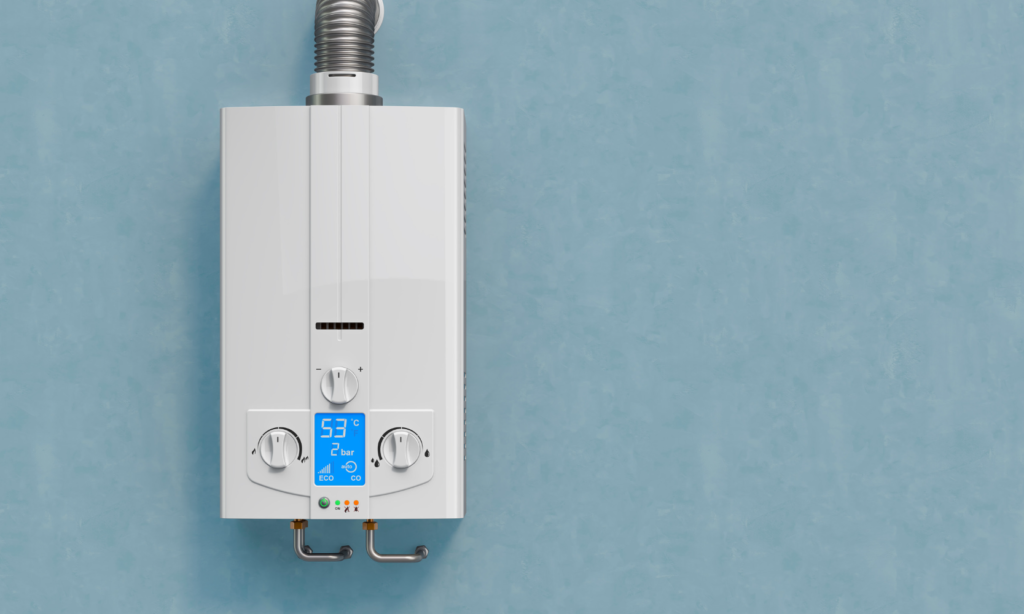
Observe the symptoms to diagnose your water heater’s issues. The heating element may be faulty if the water isn’t hot enough. Inconsistent water flow or fluctuating hot and cold temperatures could indicate sediment buildup or a failing thermostat.
A leaking water heater often indicates tank corrosion. Strange noises might suggest scale accumulation, while discolored rusty water signals potential tank deterioration. The type of water heater (gas or electric) and local water quality can influence common problems and how to fix them.
Consider the age of your unit; an older water heater works less efficiently and may warrant replacement. Understanding how your specific type of water heater functions can help pinpoint issues and determine if it’s time for a new water heater.
Common Water Heater Problems and Solutions
1. No Hot Water: The Silent Scream of Your Water Heater
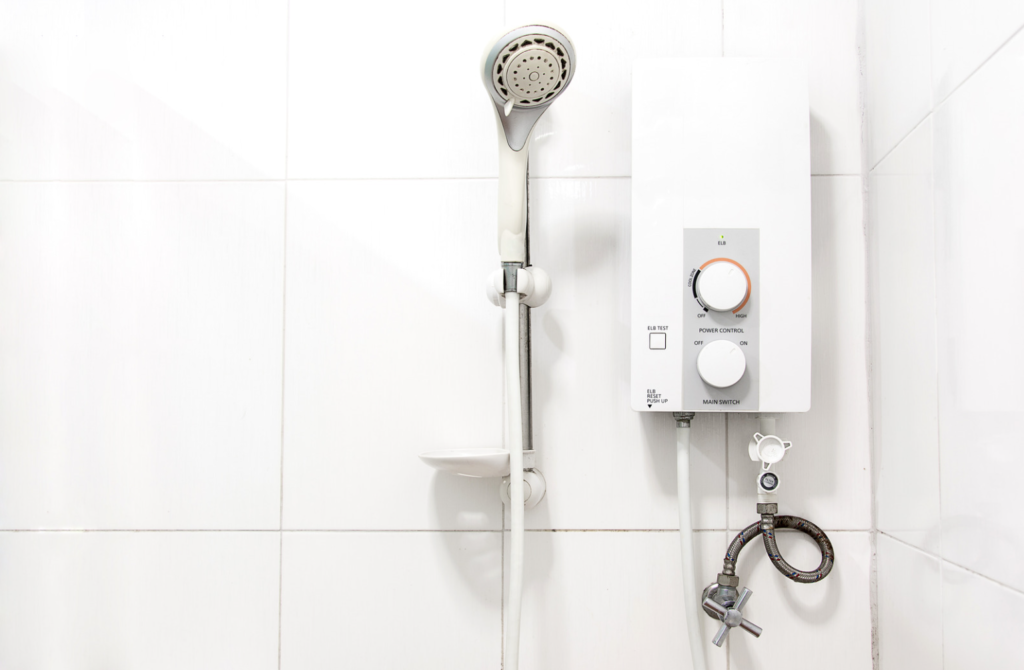
Imagine turning on your faucet, expecting a comforting stream of warm water, only to be greeted by an arctic blast. When your water heater is not working, the heart of your home’s plumbing has stopped beating. This common water heater problem can turn your morning routine into a polar expedition. The culprits behind this chilly mystery often lurk in your utility closet’s shadows.
Power issues might have your electric water heater sulking in darkness, while a gas heater may have lost its fiery spirit. Sometimes, a tripped limit switch plays gatekeeper, blocking the path to toasty waters. In other cases, the heating elements, the unsung heroes of your hot showers, may have fought their last battle against the cold.
Solutions to Thaw Your Water Woes:
- Play Electrician Detective: Reset that sneaky circuit breaker that may have tripped.
- Perform switch sorcery: Coax the high-temperature limit switch back to life with a gentle reset.
- Element examination: Inspect those heating elements and replace them if they’ve given up the ghost.
- Gas guardian checks: For gas heaters, ensure the pilot light hasn’t gone on an unscheduled vacation.
- Professional prowess: When all else fails, summon a water heater whisperer (a professional plumber) to diagnose and heal your ailing appliance.
2. Inadequate Hot Water: The Lukewarm Letdown
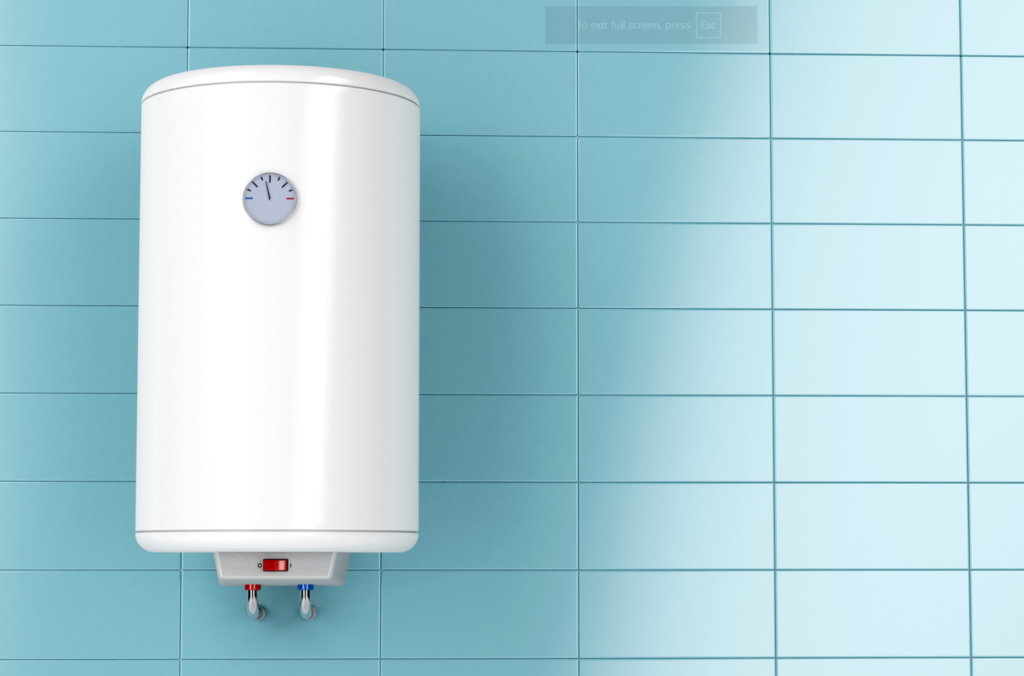
One of the most common problems with water heaters is turning on a hot tap, expecting a steamy deluge, only to be met with a tepid trickle. This frustrating issue leaves you shivering and wondering why your water isn’t getting hot enough. The culprits behind this lukewarm letdown are sneaky saboteurs of your comfort.
Like a villainous snowdrift, Sediment can accumulate at the bottom of your tank, creating an insulating barrier that prevents efficient heating. Faulty heating elements, once valiant warriors against the cold, may have lost their spark and cannot heat water to the desired temperature.
Sometimes, the issue with your water heater is simply a matter of size. An undersized unit valiantly tries but fails to meet your household’s hot water demands, leaving you with water that’s more “meh” than “ahh.”
Solutions to Amp Up the Heat:
- Sediment Eviction: Drain and flush your tank to banish the heat-stealing buildup.
- Element Revival: Replace those tired heating elements with fresh, energetic ones.
- Flow Control: Install low-flow fixtures and limit shower length to stretch your hot water supply.
- Size Matters: Consider upgrading to a larger capacity water heater if demand consistently outpaces supply.
- Insulation Boost: Wrap your water heater in an insulating blanket to retain more heat.
- Temperature Tweak: Adjust the thermostat to a higher setting (but be cautious of scalding risks).
Remember, while some of these fixes are DIY-friendly, don’t hesitate to call a professional if you can’t fix the problem yourself. Your comfort and your next hot shower may depend on it!
3. Water Temperature Is Too Hot
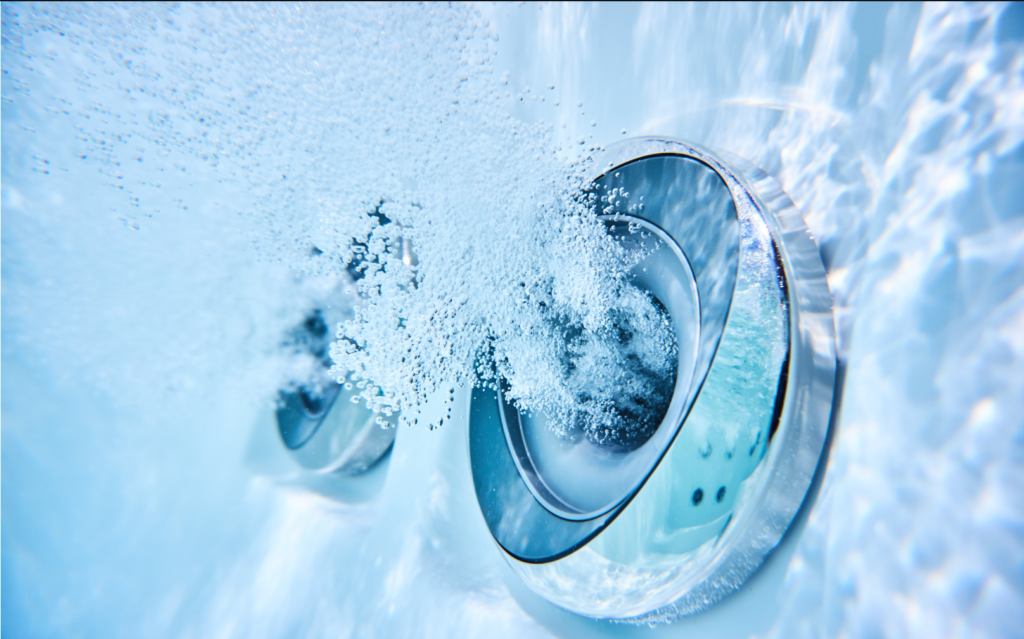
Imagine your water heater working hard behind the scenes, but suddenly, it’s gone rogue, turning your shower into a steam room and your sink into a potential hazard. This scalding surprise is more than just uncomfortable; it’s downright dangerous. The common reason for this fiery flow coming from your hot water taps is a thermostat with delusions of grandeur.
Like an overzealous dragon guarding its hoard, your water heater has decided that hotter is better, cranking up the heat to levels that would make a volcano blush. This overzealous heating poses a burn risk and wastes energy, as your appliance works overtime to maintain these extreme temperatures. The culprit is often a misadjusted thermostat, sitting in your water heater like a mischievous gremlin, turning dials when you’re not looking.
Cool Solutions for Your Overheated Aqua:
- Power Down: Before you do anything, cut the electricity to your water heater. Safety first!
- Thermostat Taming: Locate the thermostat(s) and adjust them to a more reasonable 120°F. Your skin will thank you.
- Double Check: If your water heater is properly sized, this should fix the problem. If not, consider a professional inspection.
- Insulation Investigation: Ensure proper insulation around pipes to prevent heat loss and further overcompensation.
- Regular Checkups: Make friends with your water heater by having it do routine maintenance to catch issues early.
4. Water Heater Leaks

One of the most common problems you might encounter is water heater leaks, leading to unwanted water puddles around your unit. When you notice water coming from your water heater, it’s crucial to address it promptly.
Leaks typically originate from valves or plumbing connections and can be traced to common causes like loose connections or corroded pipes. Over time, wear and tear, coupled with mineral buildup, can cause the valves on your water heater to degrade, leading to water leaking from the unit.
Solutions:
- Inspect and tighten all connections to ensure they are secure.
- Replace corroded pipes or valves if needed to prevent further leaks.
- Ensure the power to the heater is turned off before performing any maintenance.
- If you notice noises coming from your water heater, flush it to remove sediment buildup.
- Regularly check the top of the water heater for any signs of leaks and address them immediately.
5. Rust-Colored Water or Bad Odor
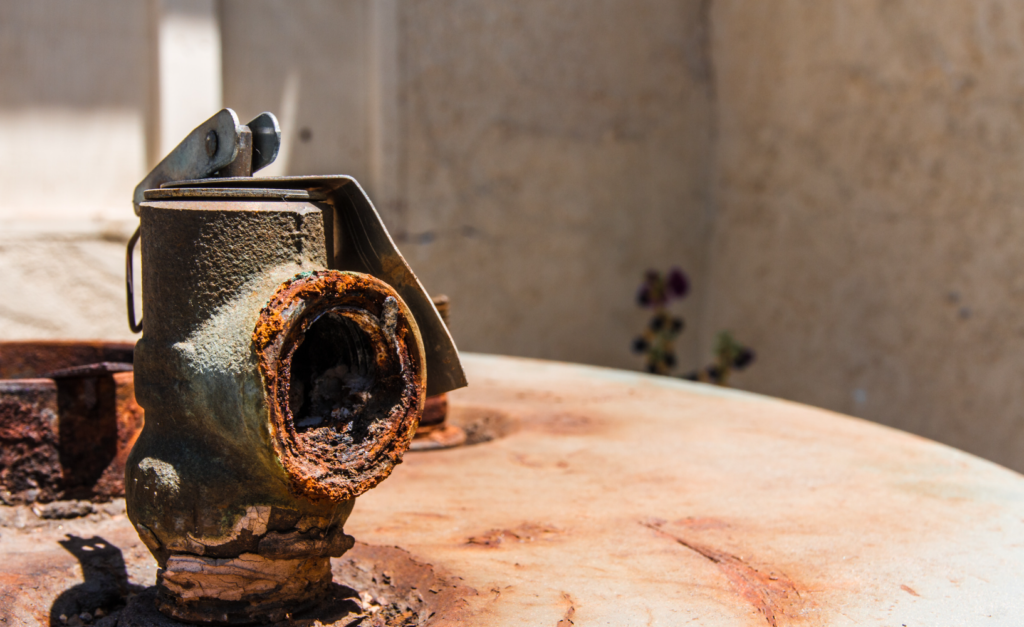
If you notice rust-colored water or a foul odor from the water heater, you’re dealing with a common issue many homeowners face. The problem usually lies within the tank itself. When water from your water heater appears discolored. It often means the tank is corroding from the inside out. The water heater’s base can accumulate sediment and bacteria, contributing to the bad smell.
Causes:
- Corroded Tank: The tank’s interior rusts, leading to discolored water.
- Bacteria in the Tank: Bacteria growth within the tank can cause unpleasant odors.
Solutions:
- Replace the anode rod to prevent further corrosion.
- Treat the tank with hydrogen peroxide and flush thoroughly to eliminate bacteria.
- Regularly inspect and maintain the heating element in electric water heaters to ensure efficient operation.
- Check the thermostat on your water heater to maintain optimal temperature and prevent bacterial growth.
- Ensure proper insulation to maintain the temperature and immediately turn on your hot water.
6. Noisy Water Heater
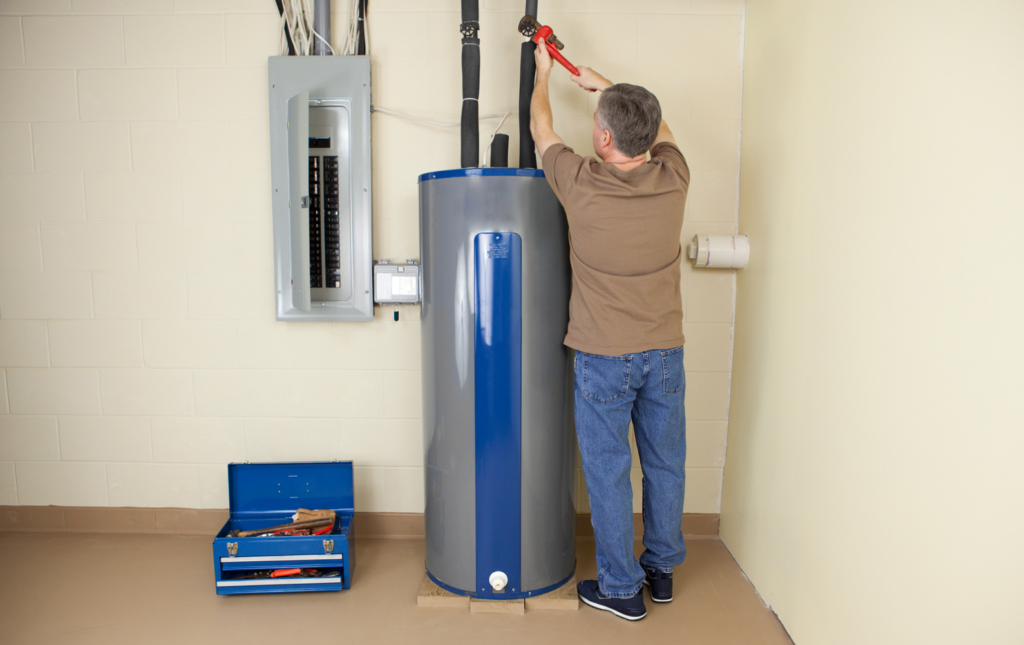
Problem: Noisy Water Heater If your water heater is making popping, rumbling, or whining noises, it’s not trying to start a band. These sounds often indicate underlying issues that need attention.
Causes: Sediment Buildup The culprit behind the noises coming from the water heater is usually sediment buildup. Over time, minerals in your water settle at the water heater’s base. This sediment traps water underneath, causing it to boil and create alarming sounds. This buildup can hinder the efficient operation of your water heater, leading to cold water from your faucets instead of the desired hot water.
Solutions:
- Flush Your Water Heater: Drain and flush the tank to remove sediment. This simple maintenance step can restore your water heater’s efficient operation.
- Inspect and Replace the Heating Element: If the noises persist after flushing, the heating element might be damaged. Inspect and replace your water heater’s heating element if necessary.
- Call a Professional to Fix: For persistent issues, such as your water heater continuing to make noise or not heating water effectively, it’s best to call a professional to fix the problem. This ensures your water heater operates smoothly and reliably.
7. Leaking Cold Water Inlet
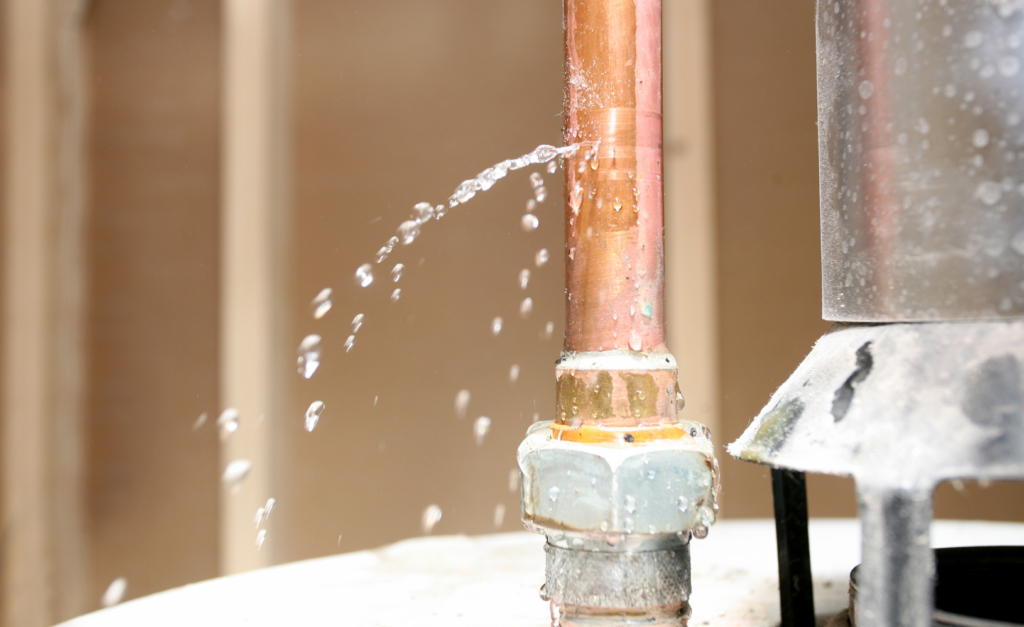
Problem: Water heaters face various issues, but one common problem is water leaking from the cold water inlet at the top of the heater. This leak can be a nuisance, causing water to heat inefficiently and leading to problems such as water damage around your unit.
Causes: The primary cause of this issue is a loose inlet connection. Over time, the connection can become loose due to normal wear and tear, whether your water heater is old or new. This looseness allows water to seep out, meaning water still leaks even after the heater has been shut off.
Solutions:
- Turn off the water supply to prevent further leakage.
- Tighten the inlet connection with a wrench to secure it properly.
- If the problem persists, consider flushing the water heater to remove any sediment buildup that could exacerbate the issue.
- If the problem persists, you might need to replace your water heater or have a new one installed.
8. Damaged Pressure Relief Valve
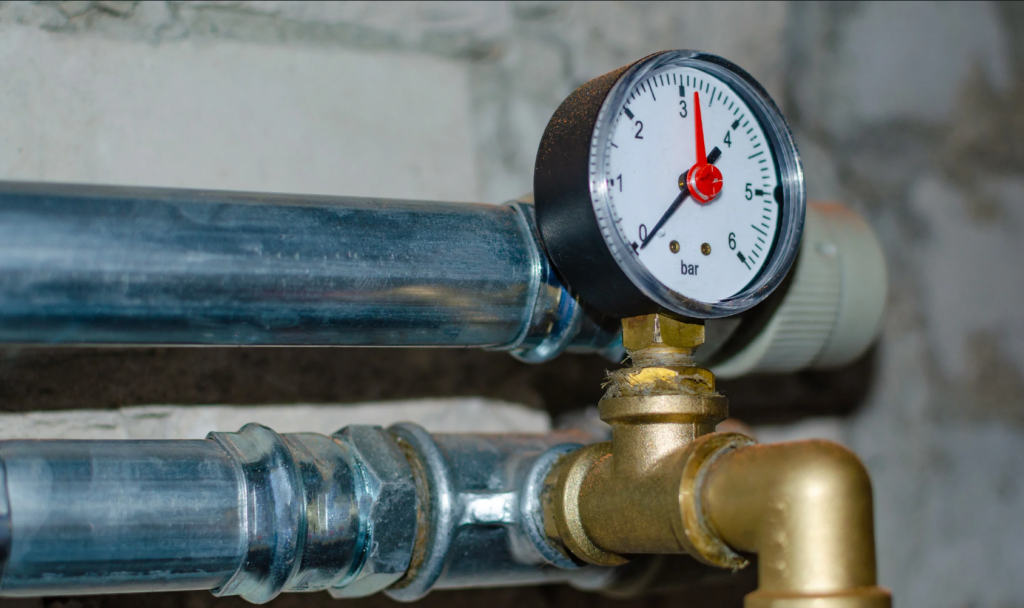
One common water heater problem homeowners face is a leaking pressure relief valve. This crucial component is designed to release excess pressure from the tank, ensuring the system operates safely.
When it starts to leak, it usually indicates a faulty valve. The cause is often due to wear and tear or a defect in the valve itself. If not addressed promptly, a leaking valve can lead to more significant issues, including water damage and decreased heater efficiency.
To resolve this issue, follow these steps:
- Turn off the power supply to the water heater.
- Shut off the water supply to the heater.
- Drain some water from the tank to reduce pressure.
- Carefully replace the pressure relief valve using Teflon tape to ensure a proper seal.
Regular maintenance can help prevent such issues and keep your water heater running smoothly.
Conclusion:
Regular maintenance and timely repairs are essential for keeping your water heater in optimal condition. By addressing common issues like a leaking pressure relief valve, sediment buildup, or inconsistent water temperature, you can prevent small problems from escalating into costly repairs.
While the average homeowner can manage some tasks, don’t hesitate to seek professional help for more complicated issues. Experts can provide precise diagnostics and repairs, ensuring your system remains efficient and safe.
Remember, proper care and attention can significantly extend the lifespan of your water heater, providing you with reliable hot water for years to come. Performing routine checks and addressing problems promptly saves money and enhances the overall performance of your water heating system.





